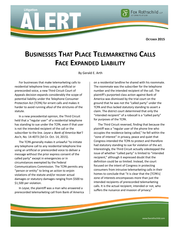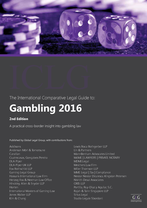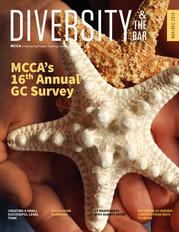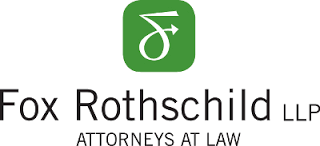Daily Fantasy Sports: An Industry in Flux – An Analysis of State-By-State Approaches to DFS – March 10, 2016
Fox Rothschild
Description
VI. Massachusetts
In Massachusetts, where DraftKings is based,
the organization and promotion of a “lottery,”
defined generally as any activity consisting of
prize, chance and consideration, is prohibited, unless conducted
within a licensed establishment. Massachusetts courts have traditionally held that a game is considered a lottery if the element of
chance predominates over elements of skill. In addition to lotteries, Massachusetts law also prohibits the organization and possession of betting pools “upon the result of a trial or contest of skill
.
. . .” Notably, as the prohibition on betting pools includes “contests of skill,” it could be argued that the determination as to whether a game is predominantly based on skill or chance is not relevant to culpability in regard to betting pools. On November 19, 2016, Massachusetts Attorney General Maura Healey proposed DFS regulations primarily focused on consumer protection, including provisions prohibiting minors from participating in DFS, ensuring truthful advertising and placing restrictions on advertising, limiting and securing player deposits, implementing data retention and security measures, addressing problem gambling and ensuring transparency and a level playing field.
The proposed regulations also prohibit contests on college sporting events and mandate that DFS operators comply with applicable tax laws. On January 11, 2016, a day prior to the public comment and hearing on the proposed DFS regulations, the Massachusetts Gaming Commission published a white paper on DFS ultimately recommending new state legislation that would encompass evolving online gaming technologies, including DFS and an “omnibus online gaming regulatory” agency responsible for such gaming, which would have the flexibility to adopt regulations as necessary to accommodate new gaming innovations. The Massachusetts Gaming Commission, however, declined to definitively opine on the legality of DFS and has indicated since October 2015 that the formal regulation of DFS is the responsibility of the Massachusetts Legislature. V. Pennsylvania Under Pennsylvania law, it is unlawful to set up or maintain a device for gambling purposes; solicit or invite any person to visit any unlawful gambling place to gamble; or permit premises to be used for unlawful gambling.
Generally, “unlawful gambling” means any gambling that is not specifically authorized under Pennsylvania law, and “gambling” includes any activity involving prize, chance and consideration. If a game is predominantly dependent on chance, even if it is dependent on skill to some degree, it will be considered “gambling.” In short, if the game is considered gambling and is not specifically authorized, it is prohibited under Pennsylvania law. In May 2015, a bill was proposed to amend the Pennsylvania Race Horse Development and Gaming Act to allow for fantasy sports tournaments. The proposed bill would bring DFS operators under the jurisdiction of the Pennsylvania Gaming Control Board “ With DFS companies allegedly paying out more than one billion dollars in prizes in 2014 and an estimated 56.8 million people in the United States and Canada participating in fantasy sports, the demand for DFS is clear and expanding, and with states constantly seeking new sources of revenue to meet budget shortfalls, the list of states seeking to regulate and tax DFS may continue to grow. ” (“Board”), and allow the Board to issue “fantasy sports tournament licenses” to casino licensees.
The bill requires that fantasy sports tournaments be conducted within a licensed facility and that participants enter into and receive prizes within a licensed facility. Casino licensees would be permitted to partner with “tournament vendors,” who would be required to be licensed and subject to a suitability investigation. Fantasy sports tournament licensees and tournament vendors would be subject to a licensing fee, and licensees would be subject to a 5 percent tax on monthly gross tournament revenue. While the bill is still pending, it has been reported that the bill may be amended, and further, that DFS regulation may be addressed within separate legislation to authorize and regulate Internet gaming within Pennsylvania. More recently on February 23, 2016, House Bill 941 was signed into law, which mandates that the Board submit a report on DFS to the House Gaming Oversight Committee to provide a definition for “fantasy sports,” address the regulation of fantasy sports in conjunction with existing Pennsylvania gaming law, suggest consumer protection measures, outline mechanisms to facilitate the collection of taxes and provide recommendations for further legislative action in regard to DFS. VI.
The Future for DFS Despite the inconsistent approaches concerning DFS on a stateby-state basis, and the continuous and varied regulatory changes facing the industry, a growing number of states are taking steps to monitor, oversee and regulate the industry, and in some cases, tax DFS revenues. With DFS companies allegedly paying out more than one billion dollars in prizes in 2014 and an estimated 56.8 million people in the United States and Canada participating in fantasy sports, the demand for DFS is clear and expanding, and with states constantly seeking new sources of revenue to meet budget shortfalls, the list of states seeking to regulate and tax DFS may continue to grow. p Christian J.
Fisher, an attorney in Fox Rothschild LLP’s Atlantic City, NJ office, focuses his practice on all aspects of gaming law, including gaming regulatory compliance, investigations. He can be reached at cjfisher@foxrothschild.com AMERICAN GAMING LAWYER • SPRING 2016 17 .
. . .” Notably, as the prohibition on betting pools includes “contests of skill,” it could be argued that the determination as to whether a game is predominantly based on skill or chance is not relevant to culpability in regard to betting pools. On November 19, 2016, Massachusetts Attorney General Maura Healey proposed DFS regulations primarily focused on consumer protection, including provisions prohibiting minors from participating in DFS, ensuring truthful advertising and placing restrictions on advertising, limiting and securing player deposits, implementing data retention and security measures, addressing problem gambling and ensuring transparency and a level playing field.
The proposed regulations also prohibit contests on college sporting events and mandate that DFS operators comply with applicable tax laws. On January 11, 2016, a day prior to the public comment and hearing on the proposed DFS regulations, the Massachusetts Gaming Commission published a white paper on DFS ultimately recommending new state legislation that would encompass evolving online gaming technologies, including DFS and an “omnibus online gaming regulatory” agency responsible for such gaming, which would have the flexibility to adopt regulations as necessary to accommodate new gaming innovations. The Massachusetts Gaming Commission, however, declined to definitively opine on the legality of DFS and has indicated since October 2015 that the formal regulation of DFS is the responsibility of the Massachusetts Legislature. V. Pennsylvania Under Pennsylvania law, it is unlawful to set up or maintain a device for gambling purposes; solicit or invite any person to visit any unlawful gambling place to gamble; or permit premises to be used for unlawful gambling.
Generally, “unlawful gambling” means any gambling that is not specifically authorized under Pennsylvania law, and “gambling” includes any activity involving prize, chance and consideration. If a game is predominantly dependent on chance, even if it is dependent on skill to some degree, it will be considered “gambling.” In short, if the game is considered gambling and is not specifically authorized, it is prohibited under Pennsylvania law. In May 2015, a bill was proposed to amend the Pennsylvania Race Horse Development and Gaming Act to allow for fantasy sports tournaments. The proposed bill would bring DFS operators under the jurisdiction of the Pennsylvania Gaming Control Board “ With DFS companies allegedly paying out more than one billion dollars in prizes in 2014 and an estimated 56.8 million people in the United States and Canada participating in fantasy sports, the demand for DFS is clear and expanding, and with states constantly seeking new sources of revenue to meet budget shortfalls, the list of states seeking to regulate and tax DFS may continue to grow. ” (“Board”), and allow the Board to issue “fantasy sports tournament licenses” to casino licensees.
The bill requires that fantasy sports tournaments be conducted within a licensed facility and that participants enter into and receive prizes within a licensed facility. Casino licensees would be permitted to partner with “tournament vendors,” who would be required to be licensed and subject to a suitability investigation. Fantasy sports tournament licensees and tournament vendors would be subject to a licensing fee, and licensees would be subject to a 5 percent tax on monthly gross tournament revenue. While the bill is still pending, it has been reported that the bill may be amended, and further, that DFS regulation may be addressed within separate legislation to authorize and regulate Internet gaming within Pennsylvania. More recently on February 23, 2016, House Bill 941 was signed into law, which mandates that the Board submit a report on DFS to the House Gaming Oversight Committee to provide a definition for “fantasy sports,” address the regulation of fantasy sports in conjunction with existing Pennsylvania gaming law, suggest consumer protection measures, outline mechanisms to facilitate the collection of taxes and provide recommendations for further legislative action in regard to DFS. VI.
The Future for DFS Despite the inconsistent approaches concerning DFS on a stateby-state basis, and the continuous and varied regulatory changes facing the industry, a growing number of states are taking steps to monitor, oversee and regulate the industry, and in some cases, tax DFS revenues. With DFS companies allegedly paying out more than one billion dollars in prizes in 2014 and an estimated 56.8 million people in the United States and Canada participating in fantasy sports, the demand for DFS is clear and expanding, and with states constantly seeking new sources of revenue to meet budget shortfalls, the list of states seeking to regulate and tax DFS may continue to grow. p Christian J.
Fisher, an attorney in Fox Rothschild LLP’s Atlantic City, NJ office, focuses his practice on all aspects of gaming law, including gaming regulatory compliance, investigations. He can be reached at cjfisher@foxrothschild.com AMERICAN GAMING LAWYER • SPRING 2016 17 .













